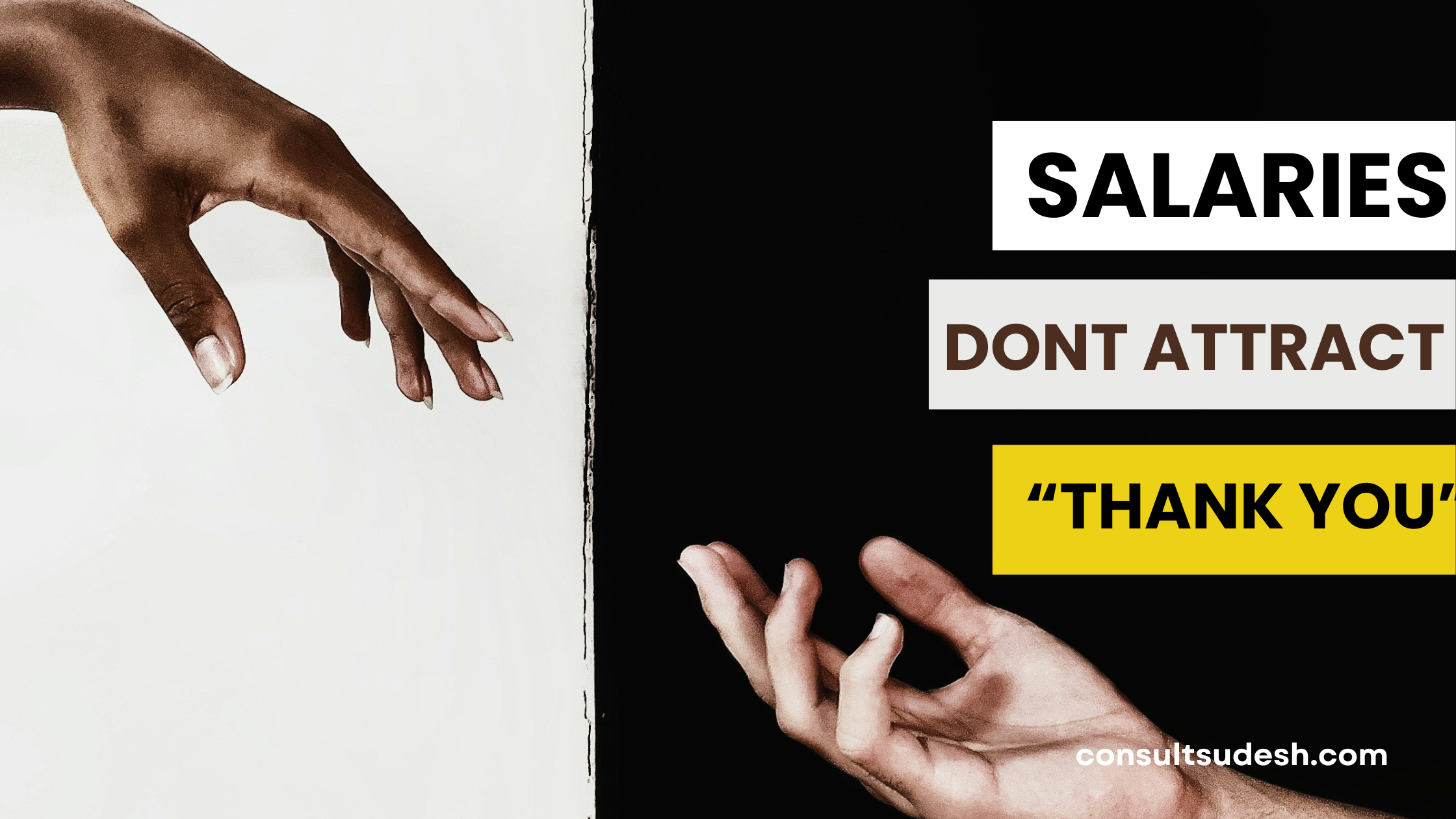“Pay day is my happiest day in the month”
That’s a statement you would expect from an employee yet it came from an employer. Whaaat? Oh yeah! There’s an employer who looks forward to pay day. In her words, “These folks deserve every penny and more. They give their best to the business”
Conversely, I once had a client who told employees at the annual retreat, “You guys should be grateful for your salaries. We make a lot of sacrifices to meet payroll” The Company had not recorded profit in seven years, so I understood his pain.
Are employers wrong to expect to be thanked or should the employees send a “thank you” message to HR at the end of the month?
Here’s my take: I spent the majority of my employment days in Sales and Sales leadership. I firstly went to make the company money to pay everyone and later I inspired a team that made the money that made payroll. I never felt for one day the need to say, “Thank you” In sales if you don’t make the numbers you go- well in hard driven sales companies like the one I worked for.
People like me were raised with the belief that you simply do your job, and that was reward enough.
Maybe you’re like me. Maybe your parents raised you with a similar philosophy; people don’t deserve thanks for doing what they’re supposed to do, only for the extraordinary. I don’t expect my wife to thank me for providing for my family and loving her-that’s what is expected of me as a father and husband.
Make no mistake: paychecks are great. (Ask anyone desperate for one these days.) But they represent one half of a transaction, a baseline act of reciprocity. When I pay my DSTV or UMEME bill, I’m forking over what I owe; I’m not sending appreciation- so I thought.
However when leading a team as I discovered from my sales team and in my current work, appreciation matters.
I have discovered that as a leader not understanding appreciation affects the way I deliver feedback to my team. People can find me to be more critical than positive if I go off the appreciation path.
Looking back, here are other shaky reasons why as a manager I withheld thanks:
- “No one thanks me, why should I thank others?”
- “Thank people and they’ll only expect more”
- “If I thank one person, I have to thank them all”
- “Thank people and they’ll get false confidence, especially folks who need to improve”
I had to get over my anger of being the “bread winner” of the company (read chief Rain maker) or fear about worst-case scenarios and get smarter about acknowledgment and appreciation:
- Whether you wanted thanks and didn’t get it or whether you’ve never expected thanks at all, leadership isn’t about you. It’s about what works best for others.
- If people expect more appreciation and get it, they may deliver more to others. Next thing you know, you’re warming up a cold workplace culture.
- If you thank one person, you don’t have to thank them all. Still, once you get into the habit, you probably won’t find it all that daunting.
- Just because some smartass employee blows off your thanks, don’t take it out on others by withholding appreciation.
- Thanking people doesn’t mean you’re declaring them to be perfect.
Think about that last point. Thanking people doesn’t necessarily rise to the level of praising them. “Thank you for putting in the extra time to cover the shift when two people called in sick” is a far cry from “You are a remarkable employee whose skills are indispensable to us.”
By choosing your words of appreciation carefully, you can make certain that they don’t escalate into the land of undeserved praise.
Well-crafted words of acknowledgment can also keep less-than-perfect staffers from giving up trying to improve because the boss never seems to take note of their efforts or small successes.
By choosing your words of appreciation carefully, you can also make certain that even your highest performers, the ones you think must instinctively know they’re valued, have no doubt about it.
Back to transformation story. It didn’t happen overnight. I got some coaching from my boss on how to connect with others more positively and since then I have become more effective.
Recognition is so powerful because it answers a fundamental human need, the need to feel valued in what we do. Managers are in a unique position to offer — or withhold — such recognition, and with it the feeling of being valued. Actually, everyone in the organization should contribute to the process of recognition.
As I write this, it’s Valentine’s Day all over the world. What a perfect time for everyone who’s the recipient of a paycheck to spend a little time being the distributor of love, whether face-to-face or in a note. It’s also a perfect time for employers not to look at employment as simply an exchange. Thank your people because they go above and beyond in some months and you might not be paying them extra for the long nights.
And by the way, thanks for taking time out of your busy days to read my blog posts.
Let’s link up on the 24th February 2024!









